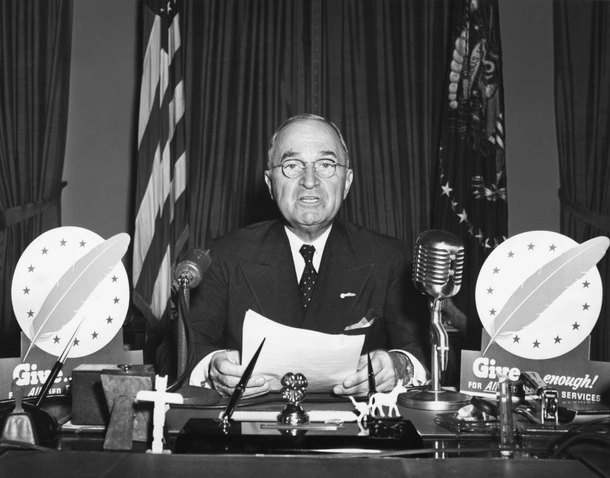Truman's Decision to Drop the Atomic Bomb: A Justifiable Choice
The article discusses the upcoming anniversary of the atomic bombings of Hiroshima and Nagasaki and mentions the success of the film "Oppenh...

The Anniversary of the Atomic Bombings of Hiroshima and Nagasaki
The upcoming anniversary of the atomic bombings of Hiroshima and Nagasaki is being marked with a reevaluation of the nuclear age. The success of the film "Oppenheimer," which focuses on the physicist who led the Manhattan Project, has sparked this reflection.
The Power and Significance of Nuclear Weapons
The development and use of nuclear weapons during World War II had a profound impact. These weapons possess immense power, as they were able to destroy entire cities with a single bomb. Despite their devastating potential, nuclear weapons have become a common part of national defense for many countries.
The Necessity of Using Nuclear Weapons
The ongoing debate about the necessity of using nuclear weapons on Japan during World War II is a significant topic. The article puts the reader in the position of President Harry Truman, who made the decision to proceed with the missions. The author highlights the significance of this decision and its lingering impact.
The Decision-Making Process
In the summer of 1945, President Truman faced a critical decision regarding Japan. The war had been devastating, and Japan showed no signs of surrendering. The first atomic bomb was detonated in the Trinity test, which played a significant role in Truman's decision-making process.
The Brutality of the Pacific War
The U.S. armed forces faced intense resistance as they approached the home islands of Japan. The battles of Peleliu, Leyte, Luzon, Iwo Jima, and Okinawa were described as long and brutal, resulting in high casualties. Okinawa, in particular, was the bloodiest battle of the Pacific War, with a significant loss of life.
The Dilemma Faced by the White House
The White House faced a dilemma regarding the use of the atomic bomb. The intense fighting in Okinawa and other Pacific islands made the U.S. question the cost of invading Japan itself. The potential loss of lives and the feasibility of a successful invasion were major concerns.
President Truman's Decision
President Truman made the decision to use a potential war-ending weapon during World War II. The article highlights the dilemma Truman faced in trying to convince Tokyo to surrender and the potential consequences if he had chosen not to use the weapon.
The Controversy Surrounding the Bombings
Historians argue about the losses caused by the atomic bombings compared to other bombings during the war. The U.S. decision to back away from unconditional surrender and the importance of Hirohito's survival and cooperation are also mentioned. The true motivations and consequences of the bombings remain uncertain.
The Impact of the Atomic Bombings
The atomic bombings had a profound impact on the Japanese people. The awe and fear of the destructive power of these weapons led to the eventual surrender of Japan. The bombings marked a turning point in history.
The Future and Questions Raised
The impact of nuclear bombings on the world raises questions about the future. The concept of Mutually Assured Destruction (MAD) is mentioned as a potential deterrent to further aggression. The article ponders whether the decrease in casualties since 1945 is a result of atomic weapons acting as a deterrent or just a temporary reprieve.
Opinion Piece by Brad Schaeffer
This content is an opinion piece by Brad Schaeffer, a commodities trader, author, and columnist. The article argues that President Truman's decision to use nuclear weapons in 1945 was the right choice given the circumstances. The author also mentions their background and upcoming book release.
